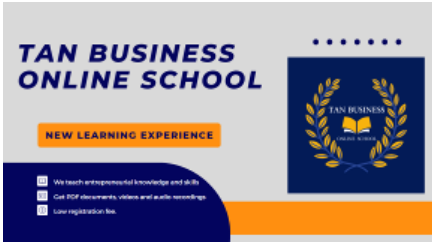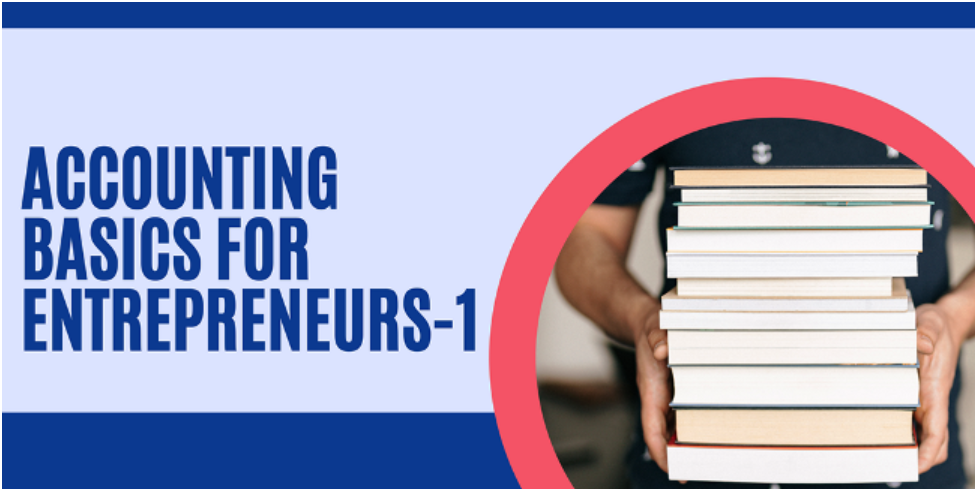
|
Contact us:
AVIC Consultants Plot 60 Block 45, Kajenge Street, Kijitonyama, P O Box 11924, Dar es Salaam, Tanzania
|
|
We are delighted to welcome you to Accounting Basics for Entrepreneurs Course Part 1 Researches that have been conducted in many countries reveal that 20% of newly established small businesses burst in the first year of their establishment. 50% disappear within 5 years and only 30% survive beyond the five year period
There are many reasons that contribute to the failure of small businesses within a five year period
One of the reasons for the failure of small businesses is attributed to businesses making losses
To find out whether businesses are making profits or losses, there is a need to prepare financial statements
Unfortunately, many small businesses do not prepare financial statements. In the absence of financial statements, it is not possible to know whether such businesses are making profits or losses
As a business consultant, I have asked many small business owners, reasons behind the fact that they donít prepare financial statements.
Majority of small business owners say, they cannot afford to employ accountants to prepare financial statements.
All in all, businesses are obliged to prepare financial statements, daily, weekly, monthly quarterly and annually. Financial statements are important because they reveal whether businesses are making profits or losses.
Furthermore, financial statements reveal position of cash flows and also show position of business assets, liabilities and net worth
The Accounting Basics for Entrepreneursí course focuses on teaching students, how to prepare financial statements.
Course Highlights ∑ Price: $ 20.00 ∑ Course Type: Online Course. ∑ Course Content: 4 Courseís Sections and 25 lectures ∑ Lecturer Support: Full lecturer support included.Course OverviewThe Accounting Basics for Entrepreneurs course covers a comprehensive range of 4 sections and 25 lectures. Youíll have 24/7 online access to study materials, introductory videos, quizzes and lecturer support for up to 3 months. Who this course is for:∑ New business owners, who want to understand accounting basics and how it relates to business functions ∑ Current business owners, who want to understand accounting basics and how it may improve the accounting processes ∑ Middle managers who want to understand accounting principles that could help them better manage their business units ∑ High school or University students, who want to learn more about "real world" accounting and how it relates to small businesses ∑ Accountants and bookkeepers who want to better help their small business clients |
|
∑ Job seekers who want to improve their knowledge of accounting What you will learnThe Accounting Basics for entrepreneursí course focuses on teaching students how to prepare financial statements. Students will learn: ∑ The basics of accounting that is needed for small business owners and entrepreneurs ∑ The main financial statements that are used as barometer to evaluating business performance ∑ We will present to our students the basics of accounting principles, concepts and terminologies
Course contentThe full course content includes 4 sections and 25 lectures as follows: ∑ Welcome Section (2 lectures) ∑ Welcome video ∑ How the course works
Income Statement (10 lectures) Income statement is a financial report, which shows a businessís income and expenditures. It also shows whether a business is making profit or loss in a given period
Income statement calculates net income of a business by subtracting expenses from income. For example, annual statements use incomes and expenses over a 12-month period, while quarterly statements focus on incomes and expenses incurred during a 3-month period.
Cash Flow Statement (6 lectures) A cash flow statement is a financial report which provides aggregate data regarding cash inflows a business received from its normal operations and abnormal sources. It also includes cash outflows that have been paid for business activities and investments during a given period.
Cash Flows Statement (CFS) provides vital information about a business. It shows the movement of money in and out of a business. It helps investors and shareholders understand how much money a business is making and spending.
Balance Sheet (7 lectures) Balance sheet is a financial statement that reports businessís assets, liabilities, and shareholder equity. Balance sheet is one of the three core financial statements that are used to evaluate a business financially. It provides a snapshot of a businessís finances (what it owns and owes) as at the date of reporting
The purpose of balance sheet is to reveal financial status of a business as at a specific point of time. The statement shows what an entity owns (assets) and how much it owes (liabilities), as well as the amount invested in a business (equity)
Importance of the Financial Statements Income Statement, Cash Flow Statement and Balance Sheet are the main financial statements that businesses typically use; hence, they can help you monitor the performance of your business. These financial statements are like instrument panel on a vehicle that can help you understand where you've been and where your business is heading. Entry RequirementsTo enroll on the Accounting Basics for Entrepreneurs course, no experience or previous qualifications is required. The course is available to all students, of all academic backgrounds. Learners should have a basic understanding of the English language and literacy skills
For more information regarding the course click the following LINK
|
|
ACCOUNTING BASICS FOR ENTREPRENEURS COURSE PART-1 |

|
Usikose kuangalia kipindi cha Dira ya Ujasiriamali siku za Jumatatu-Jumamosi 9.00-10.00 PM
https://youtube.com/alimwambola
|

|
Pata elimu ya ujasiriamali kupitia Tan Business Online School
|

|
TAN BUSINESS CHANNEL ONLINE TV |
|
TAN BUSINESS BOOK PUBLISHING |
|
TAN BUSINESS ONLINE SCHOOL |

|
Tan Business Channel |